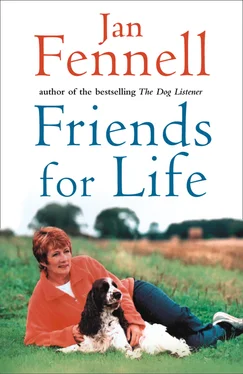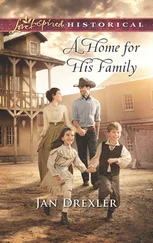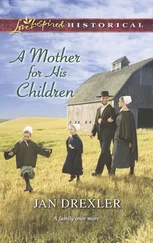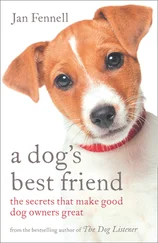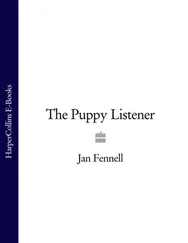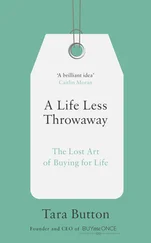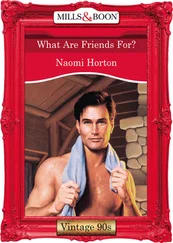Even within the family I felt left out. I had cousins, but because my dad was the second youngest of his brothers and sisters, they were all much older than me. I can remember watching them and envying the way they played with each other. It always seemed that there was no one for me, I was always the person on the outside looking in. Whenever there was a family do, my mum and dad would be together, my cousins would be together and I would be on the sidelines.
My mother’s only interest in me lay in dressing me up.
Mum thought she wanted a child but what she really wanted, I believe, was a doll. She kitted me out in frilly, patterned dresses and fussed endlessly over my hair. I’m sure it pleased my mother that I was always being admired for my clothes or my hair; I had beautiful, tumbling ringlets. But to me it was a source of sadness that I was always admired for something else, never for myself.
So, from an early age, I had no choice but to make friendships elsewhere.
We used to spend a lot of time with my father’s brother George. He had a dog called Rex, a lovely, gentle creature. Back in those days nobody had pedigrees, they had mutts. Rex was a mutt, a mixture of all sorts of influences. He was black and tan in colour, not very big; he had a curly tail, long pointy ears and a slightly foxy look. He probably had some German shepherd in him. But he was a hugely affectionate dog, and he loved directing that affection towards me.
He’d always make a beeline for me and fuss over me. I can recall how, whenever I arrived at their house on the edge of west London near Heathrow, Uncle George would say: ‘Oh Rex, your friend’s here.’ Then, while the rest of the family were talking about their important lives, I’d sit stroking him or playing ball. It didn’t stop me feeling something of an outsider within the family. But it did stop me feeling so lonely.
If my passion for animals had a source, it was inherited from my father’s side of the family. My father liked animals himself. He had owned a dog called Gyp when he was younger and had worked with horses before the war. He used to say that he missed the old horse that pulled the cart on his bread round as a young lad in the 1930s. It had been replaced by a lorry. ‘No matter how hard I whistled it wouldn’t come to me like my old horse,’ he would joke.
But it was my grandmother and my Great-Uncle Jim Fennell who really made an impression.
My paternal grandmother, Mary Ann Till, was a remarkable woman. She had grown up as part of a traditional travelling Romany family in the latter stages of the nineteenth century. Although she had said goodbye to that life a long time ago, she still wore a traditional Romany cap and smoked a pipe. She always seemed to have a cup of black, piping hot tea cradled in her hands. I can recall sitting on her knee listening to the tales she told of what, even then, seemed like a lost age.
Her parents toured the country making and selling lace and working as knife and blade makers. It was a seasonal life. The men spent the winter looking after the horses and making blades and the women made lace. Then when the spring came they would tour the stately homes of England.
The image of the wandering gypsy has always annoyed me. My grandmother recalls a life where they were welcomed by the well-to-do ladies of the manor, who would buy the lace while her father worked on all the knives and scythes.
Animals played an important part in their life. Horses and dogs were crucial members of the family business and were treated with respect. In fact, horses played their part in bringing my grandparents together.
When my great-grandparents died, the family wagon was burned according to the ceremonial traditions of the Romany nation. My grandmother and her sister were allowed to keep some of the family’s possessions. But they themselves were passed on to another family for adoption. The sisters were deeply unhappy with their new family and kept running away. They never made it very far and were returned to the new family, where each time they were treated worse than before. Eventually their shoes were taken away from them to prevent them from breaking away again.
I didn’t know my grandmother’s sister very well, but I know my grandmother was a determined character. It was the middle of winter when they made their final, successful break for freedom. They found themselves outside London, in Middlesex, but they didn’t know precisely where. They just ran, barefoot, carrying their few possessions bundled up. A blizzard was blowing and they were close to collapse when they stumbled across a horse-drawn cart on a pathway. Two young men, wrapped up in big coats, were driving the horse home through the snows. One of them shouted: ‘Come on, girls, get up here.’ The two men were my grandad, George Fennell and his brother, my Great-Uncle Jim. The pair ran a fruit and vegetable delivery business and had been out on their rounds when they were caught in the snow themselves. They were making sure the horse was looked after.
George and Jim took the two girls home to their parents; it turned out they had been lost in Hammersmith, then a village outside London. The girls stayed, and they and the brothers were eventually married.
My grandfather’s family had an equally great respect for animals. My gran used to tell me a funny story about him. He had pulled up outside a pub, The Redan in Grafton Road, at the end of a working day. There were several horses and carts outside. My grandfather walked into the pub. Going up to one of the men at the bar, he asked him: ‘Are you enjoying your beer?’
The man had hardly said yes when my grandad punched him in the face. ‘Go on, put a coat on your horse,’ he said. ‘You look after your horse first.’
They tended to hit first and ask questions afterwards back then. But the man hadn’t put a coat and nosebag on his horse. My grandad was right – the animals were their livelihood.
Like many Romany women, Nan Fennell had the ability to foresee the future. She didn’t always regard it as a positive attribute. Whenever anyone told her she had a wonderful gift she’d always say: ‘It can be, but it can also be a terrible curse.’
It was easy to see why. Her family had suffered more than its fair share of tragedy. She foresaw the deaths of two children. The first was Uncle George’s youngest, Ellen, the baby. Her older brother, the eldest of the grandchildren, was Johnny. When Ellen was born she was taken up to see my nan, who held Ellen in her arms for only a few moments before asking: ‘Where’s Johnny?’ She was in a real state. ‘Just get me Johnny.’ When Johnny appeared, she said to him: ‘We love you, and we always will, no matter what happens in your life.’ The year after Nan died, Ellen was run over in a freak accident. Johnny was at the wheel of the lorry when it happened.
She foresaw tragedy again when her youngest son, Bill, and his wife Elsie had a son. When the baby boy, Trevor, was put in her arms all she said was: ‘You love this baby, you make the most of this baby.’ At the age of three the baby fell into the River Mole at Walton in Surrey and drowned.
On both occasions, people recalled my grandmother’s words after the tragedies occurred. She didn’t spell out what she had seen. Her philosophy was that you tell someone good news but you don’t tell them bad. She had a happy knack of being able to tell her daughters and daughters-in-law that they were expecting babies – sometimes weeks before they’d even conceived. But on other occasions my father would just say: ‘She’s seen something.’ She would see things then that would upset her deeply.
While I sat on my grandmother’s lap, she would often tell me things. For instance, when I was six she predicted that I would have two children. ‘But there will be more,’ she said obliquely. It would be many years before that made any sense.
Читать дальше
